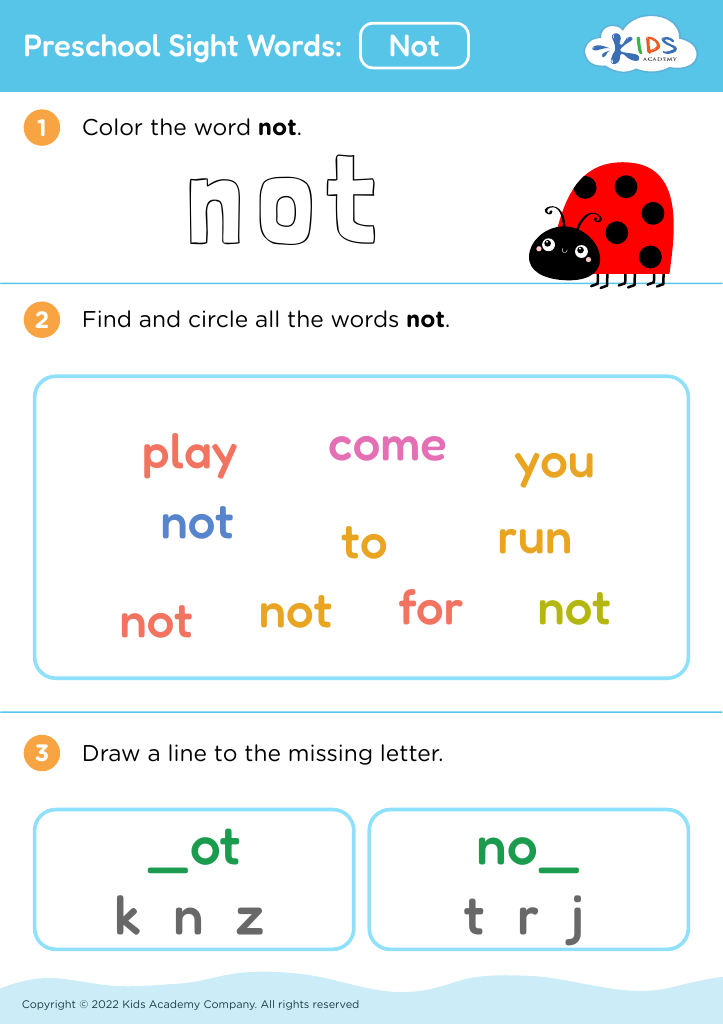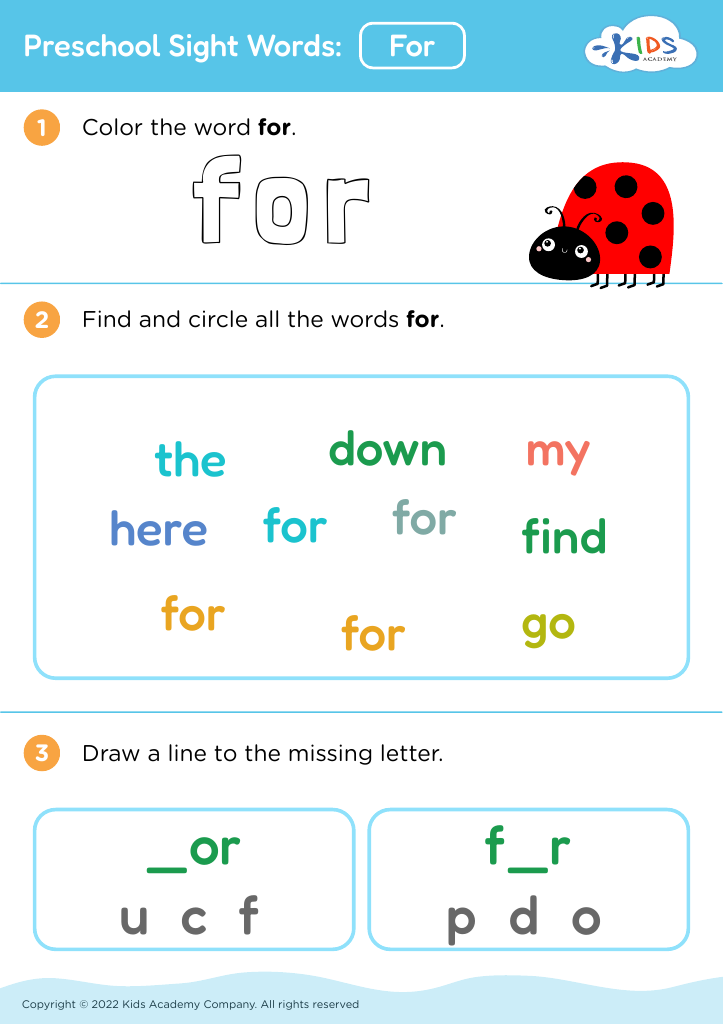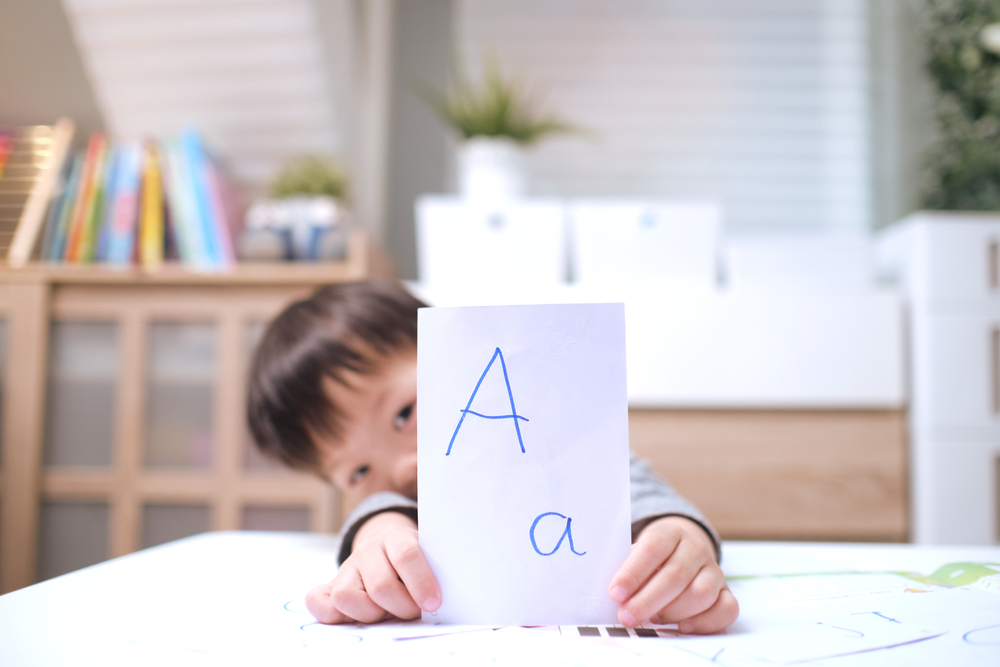Counting objects Reading Worksheets for Ages 3-7
3 filtered results
-
From - To
Explore our engaging "Counting Objects Reading Worksheets" designed specifically for children aged 3-7! These interactive worksheets help young learners develop essential counting skills while enhancing their reading ability. Through fun activities, kids will learn to identify and count objects, improving their number recognition and comprehension. Our worksheets cater to various learning styles, ensuring that every child can grasp foundational concepts with ease. Ideal for at-home practice or classroom use, these resources foster cognitive development in a playful environment. Start nurturing your child's love for numbers and reading today with our thoughtfully designed worksheets! Perfect for budding learners!
Counting objects and reading are foundational skills for children aged 3-7 that significantly influence their educational journey. Firstly, counting helps develop a child's mathematical understanding, allowing them to grasp essential concepts like addition, subtraction, and number sense. When parents and teachers engage children in counting activities using everyday objects, they promote cognitive skills, enhance memory, and improve attention spans. This hands-on learning fosters a sense of curiosity and empowers children to see the relevance of numbers in their daily lives.
Equally important, reading nurtures language development, creativity, and comprehension skills. Early reading experiences introduce children to vocabulary, sentence structure, and storytelling elements, which are pivotal to effective communication. Engaging in shared reading creates bonds and stimulates imagination, inviting discussions that enhance critical thinking.
Parents and teachers should also recognize that these early skills lay the groundwork for future academic success. Proficient counting and reading abilities at this age can lead to greater confidence and a love for learning, thus reducing the likelihood of academic struggles later on. By fostering these skills, adults can build a strong foundation that empowers children to thrive in both academic settings and beyond. Investing time in counting and reading today prepares children for a brighter, more successful future.










.jpg)













